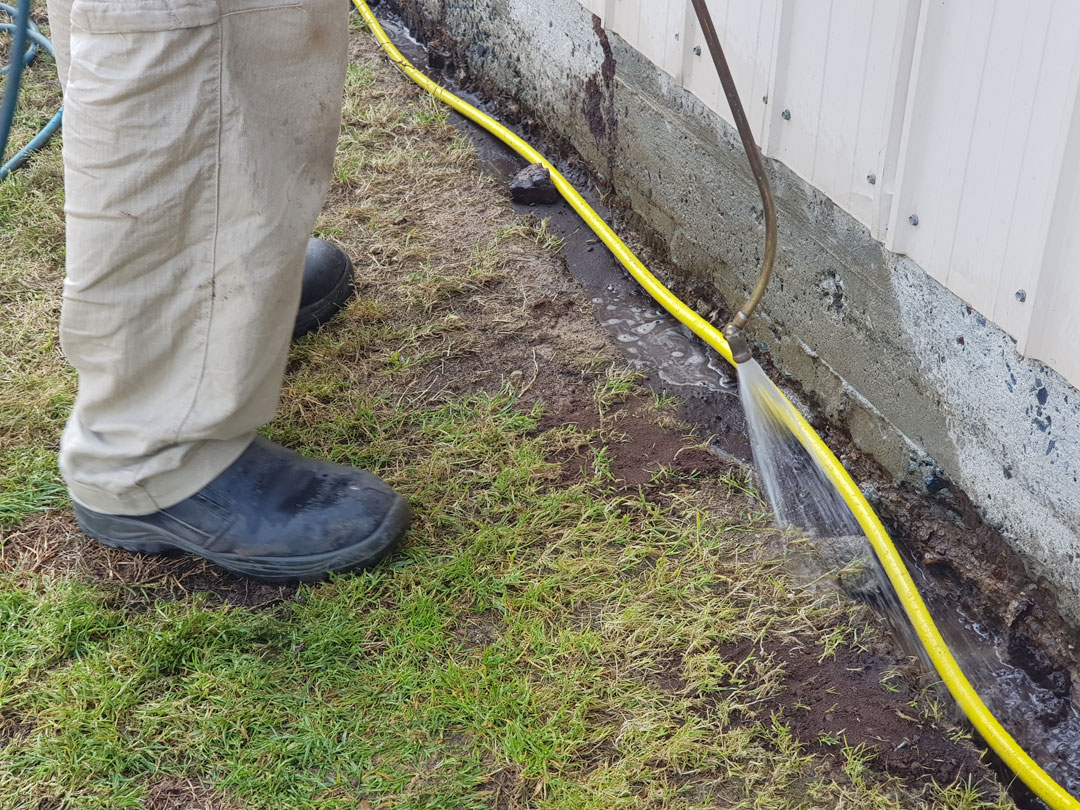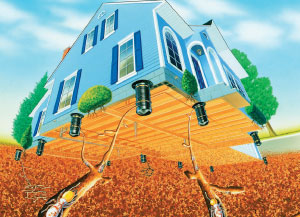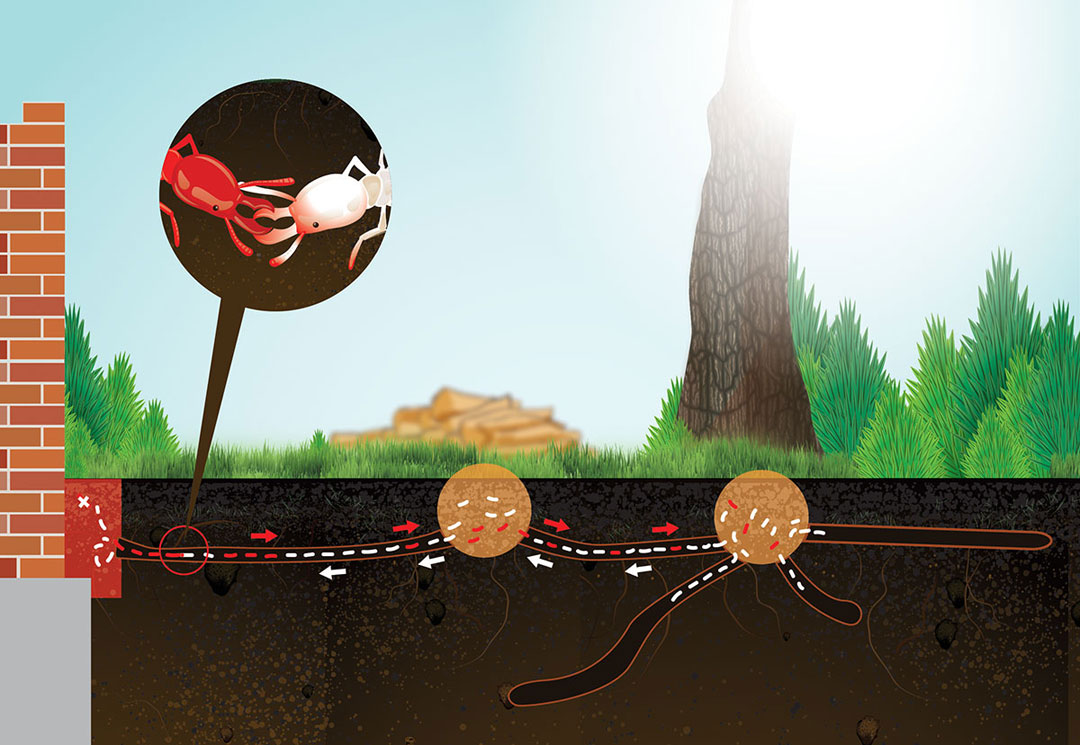Which Termite Management System works best?
Chemical Barrier vs Termite Baiting Systems
The real question is which Termite Management System will best suit your property.
Previously the only option available for treating termites was by applying Chemical termite barriers with toxic chemicals such as dieldrin and heptachlor.The use of organochlorides and organophosphates were very effective and long-lasting carcinogenic chemicals that have fortunately been de-registered.

Times Have Changed
Out with the old and in with the new like chemicals such as bifenthrin, imidacloprid, fipronil to name a few which are biodegradable and a lot safer to apply.Chemical barriers are still an effective post construction termite management method . If applied correctly they can be warrantied up to 8 years as long as regular termite inspections are carried out.
Non-Chemical Alternative
The past 20 years has seen a massive shift towards replacing chemical applications with Insect growth regulators. This is an environmentally friendly method of effectively achieving termite colony elimination.

How Termite Interception and Baiting Works
Baiting systems have become a very common and accepted alternative to chemical barriers. The termite monitoring stations are designed to intercept termites that are foraging close to your home. The stations are strategically installed around the house in areas that are considered conducive to termites. Regular monitoring and baiting active stations is a sure way to eliminate active termite colonies that are in close proximity to the house. The bait is an Insect growth regulator. The termites feed and share the bait which affects the termites by softening their exoskeleton, mandibles and most importantly sterilizes the queen. Colony elimination is established during the next termite moult.
Termite Baiting System Pros
- Cleaner installation process
- Regular reports and checks that keep the customer up to date
- Easy to identify colony elimination
- Bait stations can be repositioned with little disturbance
- Once termites begin to feed on bait they stop feeding on home
Termite Baiting System Cons
- It may take a few months to eliminate a termite colony including the queen
- Ongoing monitoring of baiting system is required
How Chemical Management Works
Termites are a social insect that are continually communicating feeding and mating with each other. Termicides are designed to either work as a repellent or non-repellent for termite activity or termite infestations. Put simply a termicide repellent will kill subterranean termites on contact creating a barrier around the dwelling whereby a non-repellent termicide allows the termites to spread the chemical further throughout the termite colony to take further back into their nest.

Chemical Termite Management Pros
- Once injected there is no need to monitor or disturb the area
- Chemicals will kill the termites and potentially eradicate the surrounding colonies that come into contact with it
- Termite treatments should come with a warranty against further invasion
Chemical Termite Management Cons
- The possible need for cutting or drilling concrete and tiles, trenching around the base of the home
- Difficult to confirm if chemical has penetrated down to the footing when drilling through concrete
- Bridging across barriers with gardens and paths and extensions will need barriers to be reinstalled to keep warranty
- Impossible to identify if chemical has eliminated the termite colony
